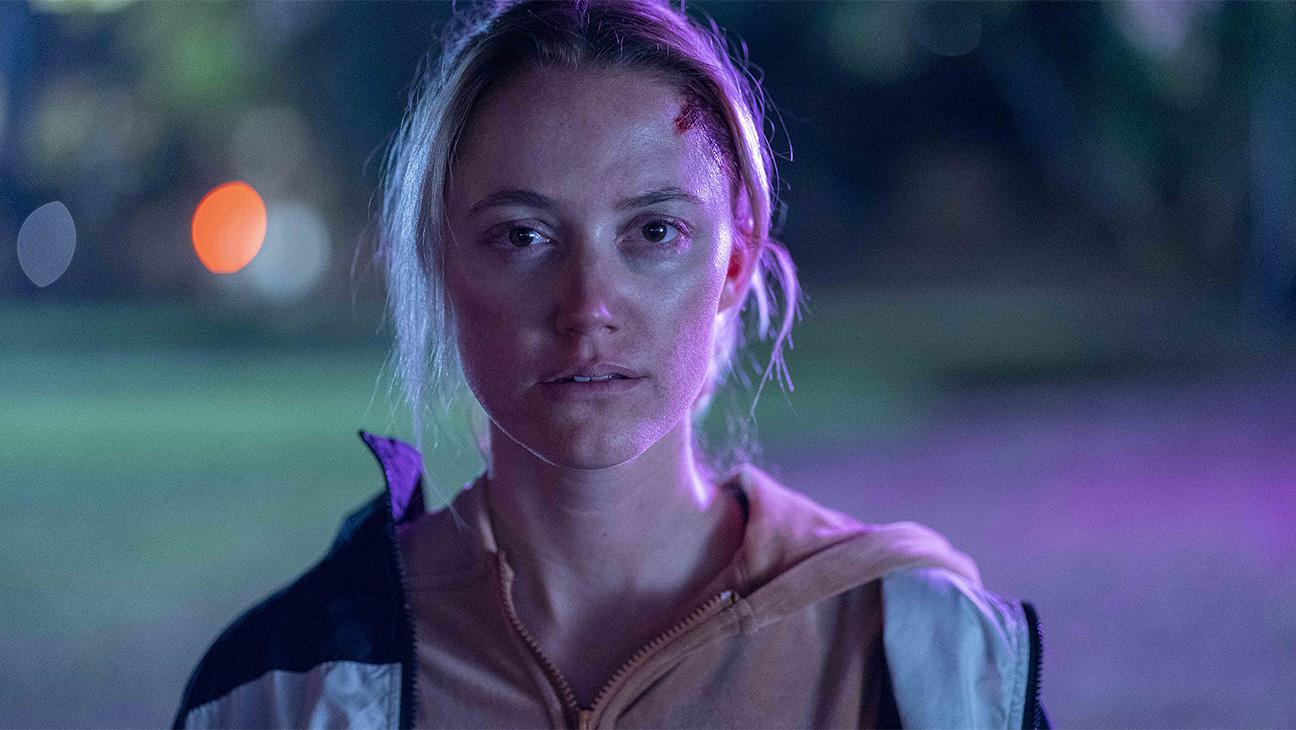Movies about drug dealers in trouble are nothing new, but the Canadian thriller In Cold Light, which had its world premiere in Tribeca, benefits from a strong cast and breakneck pacing. In prizing visceral impact over narrative clarity, the film sometimes leaves too many unanswered questions, but there isn’t much time to criticize while the film is racing forward.
It opens with the arrest and imprisonment of Ava (Maika Monroe), a tough but resourceful young woman who has clearly made some unfortunate choices. After a couple of years she is released and returns home to her deaf father (played by Troy Kotsur, the Oscar winner from CODA) and twin brother Tom (Jesse Irving). She seems to want to go straight, but her brother is still involved in drug dealing, and Ava finds that she cannot escape either. When Ava and Tom are stopped by police, everything spins out of control, and soon Ava is on the run from a whole gang of vicious criminals.
In Cold Light
The Bottom Line
Gets the dirty job done.
Venue: Tribeca Film Festival (Spotlight Narrative)
Cast: Maika Monroe, Troy Kotsur, Jesse Irving, Helen Hunt
Director: Maxime Giroux
Screenwriter: Patrick Whistler
1 hour 36 minutes
Monroe has built something of a fan base from earlier genre pictures It Follows and Longlegs, and she has a tough, gritty yet vulnerable persona that keeps us engaged. When she finds herself saddled with Tom’s baby, she is forced to find a maternal side in addition to her more hardened veneer. Ava is far from an idealized heroine, but Monroe makes certain that we do care about her survival, which is by no means guaranteed.
The picture marks the English-language debut of French-Canadian director Maxime Giroux, and he has enough experience to keep the picture hurtling forward through a series of endless perils for the embattled, resourceful Ava. Scenes with her father provide some respite from the unrelenting violence, but we’re left wanting to know more about his background. He was apparently something of a rodeo celebrity in the past, but this part of his backstory is left too sketchy.
Nevertheless, cinematography of the ruggedly beautiful Alberta landscapes gives the film texture that most drug-and-crime thrillers lack. Cinematographer Sara Mishara makes a major contribution here: Her work keeps us engaged even when the brutality threatens to overwhelm the characters.
Kotsur here demonstrates the same grizzled wisdom and compassion that moved audiences in CODA. There is one other Oscar winner in the cast: Helen Hunt, who gets major billing in the opening credits, though it takes so long for her to appear that we wonder if there is another Hunt in the cast whom we may have missed. The star of Mad About You and As Good as It Gets finally appears as the drug boss who is apparently responsible for all the mayhem that has suffused the first 80 minutes of the movie. Hunt brings off her single scene skillfully, but one can’t help suspecting that a whole other backstory was perhaps left on the cutting room floor.
This is essentially a genre picture with an excess of violence but some substance added by the cinematographer and the performers. The fact that the filmmakers persuade you to root for Monroe’s character, who’s operating in such an unsavory universe, makes this an achievement worth respecting.
